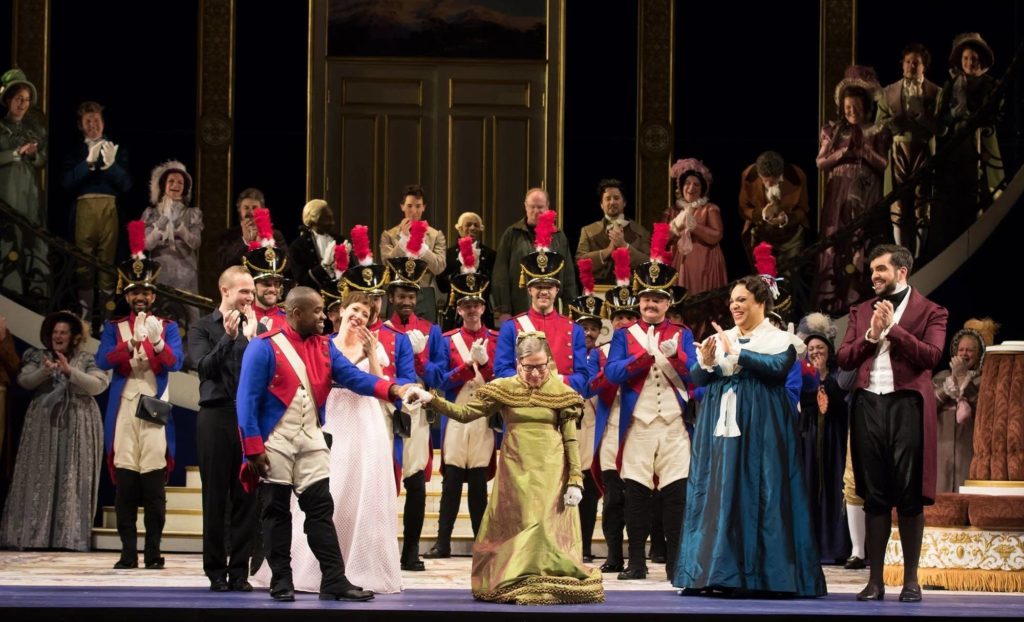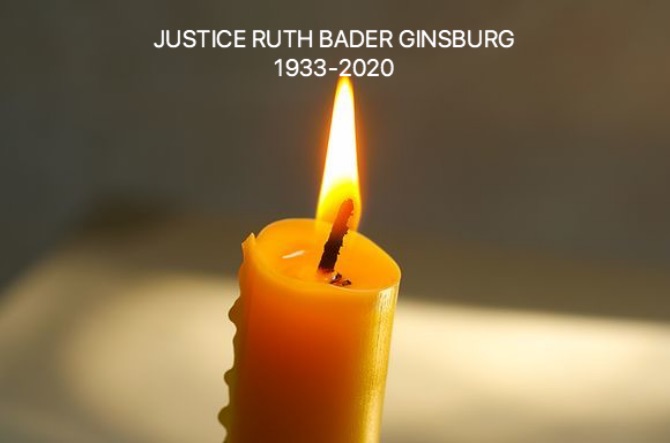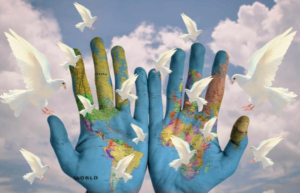Almost every article discussing the late Ruth Bader Ginsburg discusses her love of opera. I can’t remember when I read as much about opera in news articles. As a big opera fan myself, I have been somewhat unsure about the tone of some of these articles. At times, they read as if her opera fandom was something peculiar, a personal eccentricity, unlike, say, if Justice Ginsburg had been a huge Bruce Springsteen fan or never missed a Washington Nationals baseball game. Those are understandable obsessions. But opera is something else entirely. I think it is fair to say that the vast majority of Americans know absolutely nothing about opera, and don’t know how to respond to it. It remains, I believe, the only sort of music that it is still fair game to make fun of. There’s a commercial making the rounds this summer with the typical opera stereotype, a screeching heavy-set woman. You make fun of rap music, you’re a racist; you make fun of country music, you’re a coastal elite, you make fun of opera, and well, how else are you supposed to respond to opera?
RBG An Iconic Justice Journey by Peter Eisenstadt and Ayala Emmett
![]() Justice Ruth Bader Ginsburg was born to an immigrant family; her father came at age 13 her mother was the first of her siblings to have been born in the US. She grew up a proud Brooklynite and became an American icon in a lineage of Americans who shaped democracy as an innovative “experiment” of a tough, yet distinct promise of equality.
Justice Ruth Bader Ginsburg was born to an immigrant family; her father came at age 13 her mother was the first of her siblings to have been born in the US. She grew up a proud Brooklynite and became an American icon in a lineage of Americans who shaped democracy as an innovative “experiment” of a tough, yet distinct promise of equality.
Our country was built on a haunting contradiction; a settler state of Britons who were part of the worst excesses of 18th century colonialism, the vanquishing of the native population; and the massive importation of enslaved Africans, and yet created a democracy, for white men, that was in many ways more egalitarian than any government in Europe. Oppression and equality lined the heart of American democracy; they were the contradictions that Alexis de Tocqueville wrestled with almost two centuries ago and we are still wrestling with them, as did, until a few days ago, Ruth Bader Ginsburg.
We Grieve at the Loss of Our Beloved Justice RBG
We are Heartbroken at the loss of RBG who made an enormous difference throughout her life. As lawyer and when she became a Supreme Court Justice she tirelessly pushed forward America’s promise of justice and equality.
We are grieving with all who love her, family, friends and this country. What we need to do to honor her, each of us, is to follow her courage and wisdom to do the right, ethical, thing. Justice Ruth Bader Ginsburg was woman of valor, a light and a leader in American democracy. Her memory will be a blessing for ever.
Praying for Our Country by Ayala Emmett and Peter Eisenstadt
As we prepare to celebrate Rosh Hashanah tonight, we share with all our readers a prayer for our country. Rochester NY, an American city has become the center of the country’s attention when we learned of the details of the tragic death of Daniel Prude in police custody.
Every year is unique, but this year is more unique than most. This year we have seen grave dangers and terrifying disasters, a threatening Covid-19, fires ignited by climate change, soaring unemployment, racial injustice and attacks on the institutions of American democracy.
May We Be The Head And Not The Tail: A Blessing For Rosh Hashanah—by Matia Kam
In the midst of a dreadful pandemic that is sweeping our nation and the world, we are preparing for our High Holy Days, and the first of them Rosh Hashanah marks the beginning of the Hebrew New Year. It is, according to Jewish tradition, the Day of Judgment for the entire humanity created in God’s image. As we approach Rosh Hashanah in this time of crisis and uncertainty we seek words of comfort and wisdom in the Torah and in the words of our sages.
Among the many blessings in Deuteronomy 28 we read, “God will make you the head, not the tail,” and I note that it is customary in some communities at the meal on the night of Rosh Hashanah to recite this blessing, ending it with the words, “may it be so.”
A Death in Our Town and a Sacred Promise by Ayala Emmett
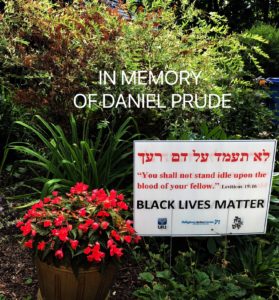
After the murder of George Floyd my brother asked if I thought that the same thing could happen in my town. I told him that Minneapolis could have been any city in America, yet a death so blatantly brutal in police custody had not happen in my city. I was wrong. It did happen here in Rochester NY. I just did not know about it. It has been easy not to know because unlike in the George Floyd killing, which took place in broad daylight and was recorded by a brave witness using her cell phone, the only people who could have taken pictures of the death of Daniel Prude at 3:16am were the police.
How Trump Turned the US Postal Office into His Jim Crow by Ayala Emmett and Peter Eisenstadt

Trump cracked open an ugly American white secret that previous racist presidents managed to conceal, deny, or massage. The public cracking culminated with George Floyd, a moment when white America could watch racism in action of 8 minutes of police murdering a black man begging for his life, crying for his mother as the white policeman who took his last breath, looked at the camera with all the arrogance of legal protection that we have granted him.
White America and the rest of the world could see this secret, legal brutality against black America and grasp a more profound truth about this country: that all along it has nurtured practices that under the wrong elected regime could topple its democracy. What we saw is democracy’s fragility. We realized that we were complicit in the undoing of democracy while supposedly lauding and singing its praises. Since the murder of George Floyd we began to experience the truth that the city on the hill was lip service, a self-deceptive lie, that the “city” was, and has been, a gated community of institutions that protected the power of privileged rich white men.
Apeirogon: A Novel (Colum McCann: Random House, 2020) Reviewed by Peter Eisenstadt
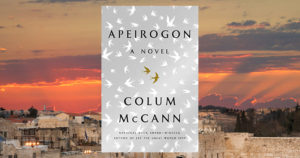 “Geography here is everything,” writes Colum McCann on the first page of Apeirogon. The phrase recurs throughout McCann’s remarkable, compulsively readable new novel. (BTW, an apeirogon is a polygon with an infinite number of countable sides.) The “here” is the Jerusalem and West Bank of the present and recent past, of the First and Second Intifadas, of Netanyahu’s unending reign of misrule, and of quagmires new and old. A sense of claustrophobia pervades McCann’s novel. It is a place of constricted and narrowed geographies and of intellectual claustrophobia as well; where the political options impinge and jostle one another, like cars vainly trying to pass one another on one of those tight roads in Palestinian communities only one car-width wide; a world where familiarity has bred a contemptuous and sometimes murderous understanding of “the other.”
“Geography here is everything,” writes Colum McCann on the first page of Apeirogon. The phrase recurs throughout McCann’s remarkable, compulsively readable new novel. (BTW, an apeirogon is a polygon with an infinite number of countable sides.) The “here” is the Jerusalem and West Bank of the present and recent past, of the First and Second Intifadas, of Netanyahu’s unending reign of misrule, and of quagmires new and old. A sense of claustrophobia pervades McCann’s novel. It is a place of constricted and narrowed geographies and of intellectual claustrophobia as well; where the political options impinge and jostle one another, like cars vainly trying to pass one another on one of those tight roads in Palestinian communities only one car-width wide; a world where familiarity has bred a contemptuous and sometimes murderous understanding of “the other.”
Susya: Why We Must Stop Annexation by Ayala Emmett with photos by Gili Getz
Susya: Why We Must Stop Annexation
by Ayala Emmett
with photos by Gili Getz
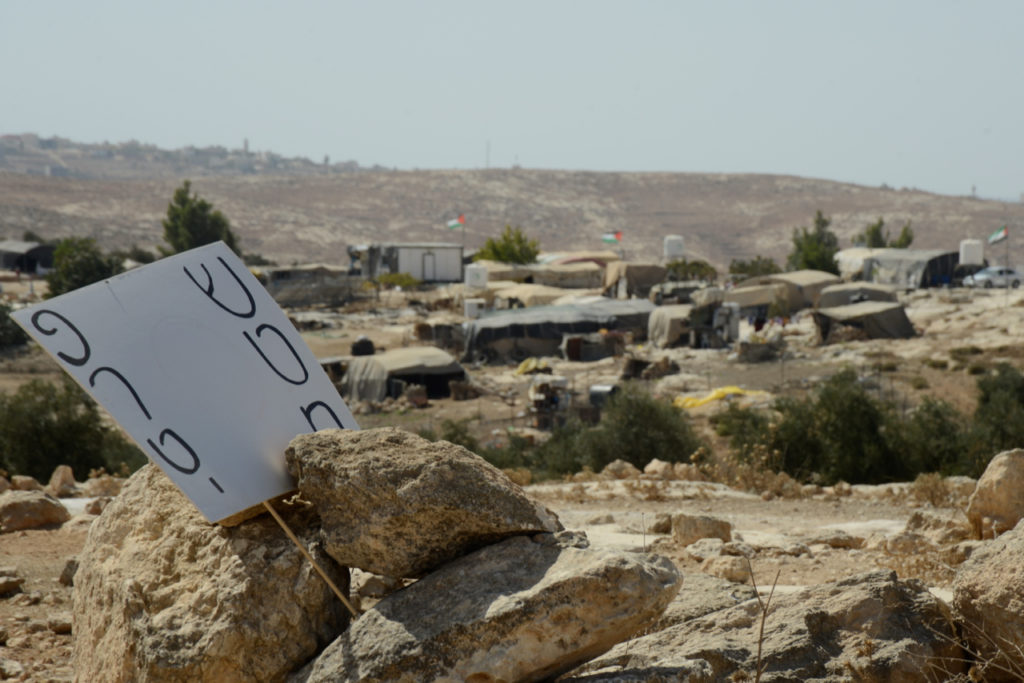
The protests that flooded the US after the murder of George Floyd by the police have spread anguished cries for justice in this country and around the world. In the following account I describe my visit to Susya, a Palestinian village that is a cry for justice similar to what we have recently witnessed. The local demand for human rights in Susya or Minnesota is universal. Following the protests in America, it is easier to see that the village of Susya reveals ominous implications for Netanyahu’s Trump-supported plot of annexation.
Genesis 2020 by Ayala Emmett
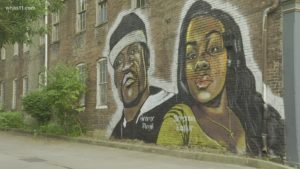
When Cain put his knee
On his brother Abel
He took away his life
When Abel died
He left us his breath
So we can always hear the cry
Mother, my mother Eve
I cannot breath
When we declare in every language
Black lives matter
There is Abel’s breath
When we shout, enough already
There is justice in the world
When everywhere we turn
We see sisters and brothers
When we know that to save one life
Is to save the whole world
This is when the Ruah God’s breathe
Given to us in Genesis
Dwells in you and me
